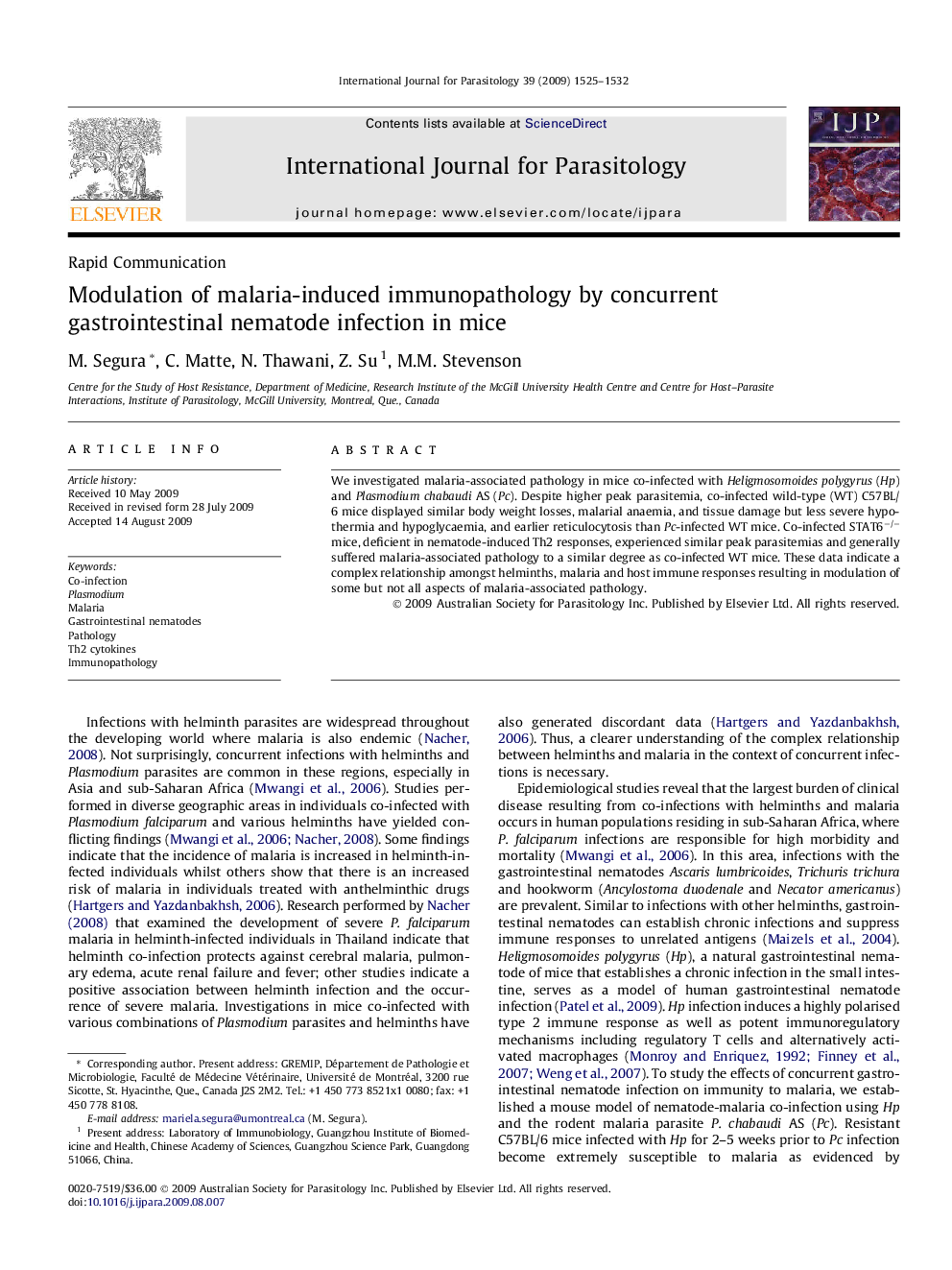| Article ID | Journal | Published Year | Pages | File Type |
|---|---|---|---|---|
| 2436672 | International Journal for Parasitology | 2009 | 8 Pages |
We investigated malaria-associated pathology in mice co-infected with Heligmosomoides polygyrus (Hp) and Plasmodium chabaudi AS (Pc). Despite higher peak parasitemia, co-infected wild-type (WT) C57BL/6 mice displayed similar body weight losses, malarial anaemia, and tissue damage but less severe hypothermia and hypoglycaemia, and earlier reticulocytosis than Pc-infected WT mice. Co-infected STAT6−/− mice, deficient in nematode-induced Th2 responses, experienced similar peak parasitemias and generally suffered malaria-associated pathology to a similar degree as co-infected WT mice. These data indicate a complex relationship amongst helminths, malaria and host immune responses resulting in modulation of some but not all aspects of malaria-associated pathology.
Graphical abstractMalaria pathology is modulated in mice with concurrent gastrointestinal nematode and malaria infections. A complex cytokine network, including regulatory and Th2 cytokines, may regulate protection versus pathology in co-infected hosts.Figure optionsDownload full-size imageDownload high-quality image (155 K)Download as PowerPoint slide
